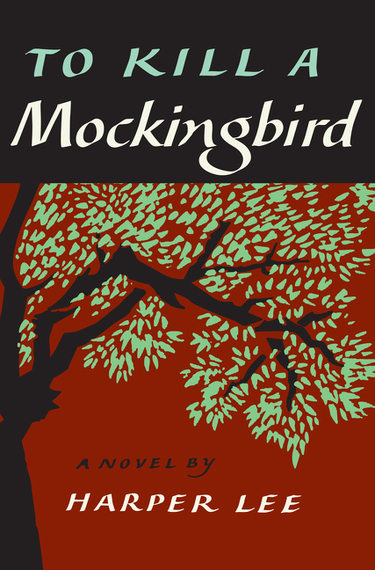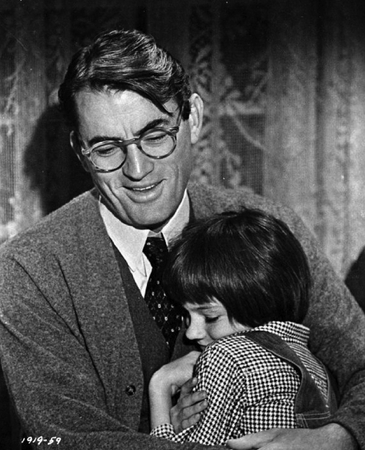I hope the Alabama Department of Human Services was right.
Last spring, the state agency conducted an inquiry into a complaint that Harper Lee, the fiercely private author of To Kill A Mockingbird, was a victim of elder abuse. Friends and fans had become concerned for Lee's welfare after reports that she had approved a proposal by HarperCollins Publishers to publish in book form a rejected manuscript draft Lee had written in 1957. People managing Lee's legal and business affairs insisted that Lee fully understood the deal, but others close to her said she never had wanted the draft, titled Go Set A Watchman, released. They feared that the beloved writer, 89 years old and physically frail, might have been become mentally frail, too, leaving her vulnerable to manipulation.
In April, the department closed its investigation, having concluded that Lee was mentally competent and that there was no evidence to support the complaint. On July 14, after a deviously clever pre-publication publicity campaign, HarperCollins published Watchman as planned.
But the fact that Harper Lee may have known what she was doing and had the legal right to do it still doesn't mean it was the right thing to do.
To Kill A Mockingbird, both Lee's Pulitzer-Prize-winning 1960 novel and the 1962 Academy-Award-winning film adaptation, revolves around people and events in a small Alabama town over the course of Copyright HarperCollins Publishers three years during the Great Depression. At its heart are the members of the Finch family: widowed father Atticus, a lawyer; his daughter, Jean Louise (Scout), who narrates the story; Scout's younger brother, Jem; and Calpurnia, the African-American woman who is the family's housekeeper and the de-facto substitute for the children's dead mother. In one key storyline, Atticus defends Tom Robinson, a black man falsely accused of raping a white woman.
Today, the book and the movie alike continue to affect readers and viewers on intense emotional levels undiminished by the story's distant time period or small-town setting. The novel has sold more than 30 million copies in 40 languages worldwide and typically sells an additional three-quarters of a million copies each year. In 2003, a jury assembled by the American Film Institute chose the movie version of Atticus Finch as "the greatest hero in 100 years of film history."
Mockingbird is an exploration of parent/child connectedness, the passage from youth to adolescence, prejudice, justice, love, forgiveness, nobility, courage and hope. And it is more.
As generation after generation of readers and viewers have come to love the novel, the film and its characters and stories; and as the powerful emotions stirred in people -- young people especially -- have held tight through time, Mockingbird has become something that transcends art. It has become a defining element of American culture itself.
[Copyright 1962, Universal Pictures]
Works that achieve this exceeding rare status earn heightened protection. Their creators may well possess legal rights that permit them to modify what they have made or even link them with other works of art. But legal rights are different from moral authority. Once a work belongs to the culture -- to all of us -- the culture demands that it be preserved, not defiled or desecrated.
Yet last month's publication of Watchman poses just such a threat to Mockingbird.
Start with the fact that marketing Watchman as a new novel is a deception; the truth is that it is an early manuscript draft written by a young would-be novelist and rejected in 1957 by a New York publisher, J.B. Lippincott Co. Her work spurned, Lee did not defend it. Instead, she accepted the judgment of a Lippincott editor, the late Therese von Hohoff Torrey, and accepted Torrey's offer of help. Though the manuscript was unpublishable, Torrey bought it to serve as a starting point for developing the great promise she saw in Harper Lee.
The two worked together, focusing the writer's considerable literary gifts on countless additional drafts and revisions. The changes included radical restructuring of the novel's time frame, dramatic emphasis and point of view. New plot points displaced old ones during rewriting. Character names and family connections generally survived, but personalities and interactions with each other did not.
At the end of the lengthy creative process, the finished work of fiction bore virtually no resemblance to the original Watchman manuscript, so it got a new title: To Kill A Mockingbird.
Obviously, it is flatly inaccurate to call Watchman a "sequel" to To Kill a Mockingbird, although that fact seems to have eluded some recent reviews and articles.
Equally absurd are stories that say the honorable, idealistic, younger Atticus of Mockingbird "evolved" into the racist older Atticus of Watchman. There was no such evolution. The Atticus of Watchman was written first. It was only in the process of rewriting and revising that draft that Lee "evolved" Atticus into the younger, admirable, heroic figure he is in Mockingbird.
To Kill a Mockingbird became a touchstone of our culture because it so beautifully forged connections for us with characters who let us feel hope for the future. We love Atticus and Scout and Calpurnia and the fearfully shy Boo Radley for being decent and sometimes even heroic under severely challenging circumstances. Their "existence" comforts and inspires us. We hope that we might be as good as they are if we were put to the test.
Mockingbird has stayed vibrant and powerful across years and generations of diverse readers and viewers because we hunger for honorable, ordinary heroes. We want to feel that human beings are fundamentally decent, despite the punishing assault of news story upon news story every day that demonstrates the opposite.
Those of us who already know and love Mockingbird will remain faithful. But I wonder whether generations to come will have that opportunity. My nightmare scenario envisions Mockingbird and Watchman being taught to young students and readers as the two essentially equal parts of a Harper Lee "unit." This inevitably would generate compare-and-contrast discussions of the two Atticuses, among other things, that substitute intellectual analyses for the emotional connections the Mockingbird characters and stories used to build with readers.
Instead of feeling moved by the quiet beauty of Atticus's morality in Mockingbird, students will learn that the racist Atticus of Watchman conveys a more "nuanced" picture of the reality of its era. The implication will be that a novelist is for some reason obliged to depict things only as they are or were, rather than offering an idealized vision of how they might be better, purer and nobler.
How likely will it be that a school kid will identify with Attitus as the heroic, virtuous, principled creation he is in Mockingbird after seeing him depicted as a racist in Watchman? How can she commit herself to the human truths in Mockingbird one week, knowing that more "nuanced" versions of them lurk in next week's lesson plan for Watchman?
Watchman may have some worth as academic archeology, but that, too, is an intellectual exercise likely to leave young students cold. The unique power of Mockingbird, on the other hand, has always flowed from its impact on our hearts, not our brains.
Protecting the transcendent magic of To Kill A Mockingbird is now the responsibility of the middle school and high school teachers who will introduce the work to new generations of readers. I'll tap into the novel's optimism for the future and say I'm hopeful the teachers will succeed.
A version of this column originally appeared in the St. Louis Jewish Light.


